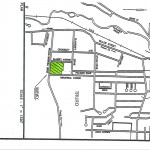Classes for adults show it’s never too late to learn
TRURO — Marie Bryan can still remember the feeling of embarrassment standing in front of her Grade 7 science class, searching for answers to her teacher’s questions.
“I had it all in my head before I went to school, and then when I was asked, I couldn’t do it,” Bryan said, recalling that day at the blackboard so many years ago.
After becoming frustrated with her struggles, she quit school that year to enter the workforce. She spent years looking after children but always thought about returning to the classroom.
Today, Bryan, now 70, is back in school and couldn’t be happier. She is one of about 70 people who attend classes offered by the Colchester Adult Learning Association.
“It’s been lovely,” Bryan said. “The teachers are great . . . I can’t wait to come to school.”
This is not an uncommon refrain, said Rob MacLellan, the association’s executive director.
Making the decision to come back can be equally scary, MacLellan said, because people wonder how they might fit into the program. But once they do return, he said, it isn’t long before there is a noticeable change in each participant’s confidence and comfort.
“The personal development in the learners is as equally important and as equally realized as the upgrades in actual academic skills. The turnaround is absolutely amazing in some cases.”
The association has operated for 20 years and is one of 35 operating around the province.
Groups such as the one in Colchester County offer the first three levels of the program before participants go to an adult high school or Nova Scotia Community College to complete Level 4, the equivalent of grades 11 and 12.
People come back to school for a variety of reasons, including to improve their employability skills, get ahead at work or just to improve their own general knowledge and abilities, MacLellan said.
“They might want to be able to read to their children or grandchildren or help them with their homework. We’re here for any of those purposes.”
Instructor Andrea Manthorne said much of what she does in Level 1 is about helping people learn to express themselves and form opinions.
“Oftentimes, when people haven’t had much of an education, people tell them what to do all the time,” Manthorne said. “What I want is for people to learn to think for themselves, to make decisions, to think things out quickly.”
These goals are framed around the development of reading, writing and math skills.
Participants in the Level 1 program also learn about handling money and other practical skills. The main thing is to encourage people in an open forum and challenge them, said Manthorne.
“We encourage challenges. If you don’t have to overcome something, generally you’re not going to grow, and we definitely encourage growth here.”
Bryan is already starting to feel more confident after just a month of classes. Because the program uses a continuous enrolment model, people can work at a pace and around schedules that suit them, moving from level to level as they are ready.
And while Bryan may not be thinking about finding a new job at this point in her life, the idea of being able to help someone in need or just broaden her mental horizons is exciting.
“It brightens up your mind. You know that you’re doing something useful that you’ve always wanted to do and couldn’t.”



